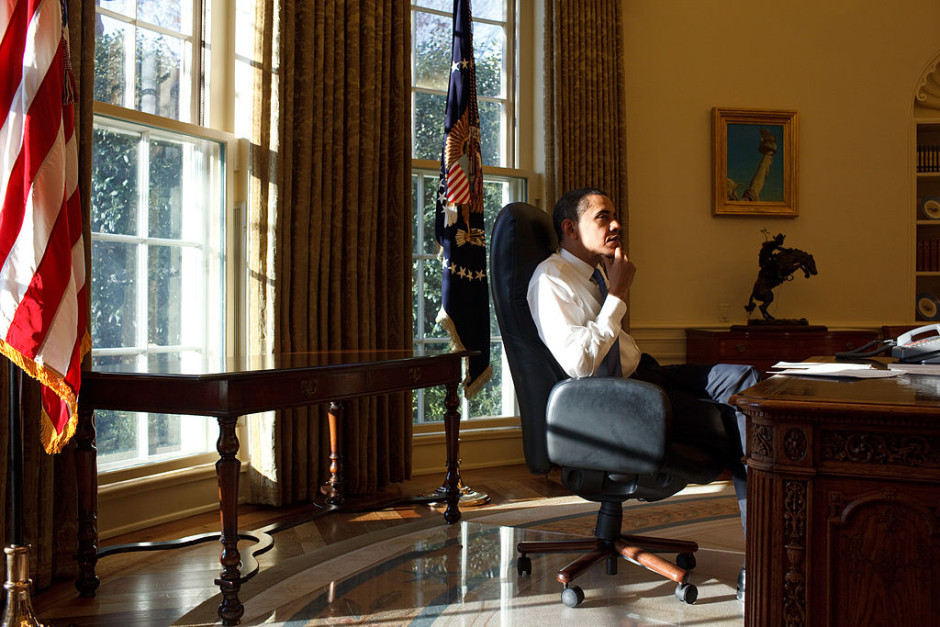The United States and Russia have reached an agreement to end the bloodshed in Syria, but it could easily fizzle and die.
The accord, signed in Munich on February 12 by Russian Foreign Minister Sergei Lavrov and U.S. Secretary of State John Kerry, is ambitious in scope but precarious and fragile.
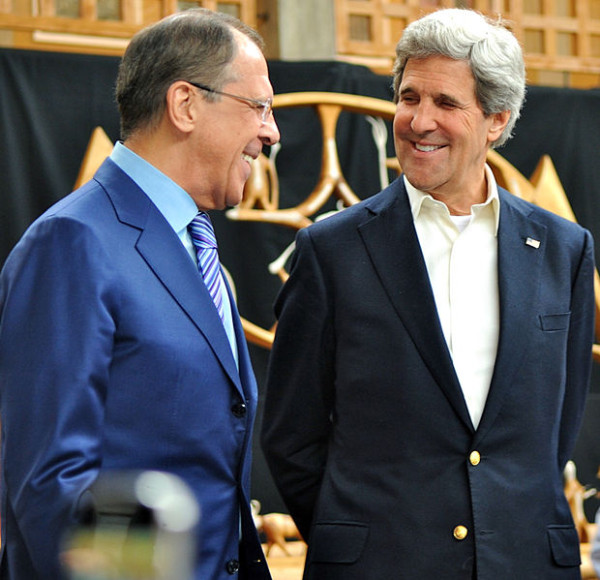
It calls for the delivery of humanitarian aid to besieged Syrian cities and a cessation of hostilities within one week so that a long-term ceasefire can be implemented. Its overarching objective is to extinguish the raging civil war, which has virtually destroyed Syria as a functioning state.
The agreement has been greeted with skepticism by observers, and the reasons are clear. It excludes key players like Islamic State and the Al Nusra Front, which have been on the ascendancy for several years now. And it tacitly allows Russian aircraft to keep bombing rebel forces battling the regime of Syrian President Bashar al-Assad, Moscow’s staunchest ally in the Middle East.
On the positive side, it could provide desperately needed relief to long-suffering civilians. In all other respects, it appears to work in favor of Assad and the Russians. It allows the Syrian regime, backed by Russia, to continue bombarding Aleppo. It may well undermine Syrian rebels dependent on the United States. It hardens Assad’s resolve to preserve his Baathist dictatorship. As the agreement was announced, Assad proclaimed that his goal is to regain lost territory and bring the entire country under his sole authority, an outcome that would be in Russia’s strategic interest and work to the detriment of the United States.
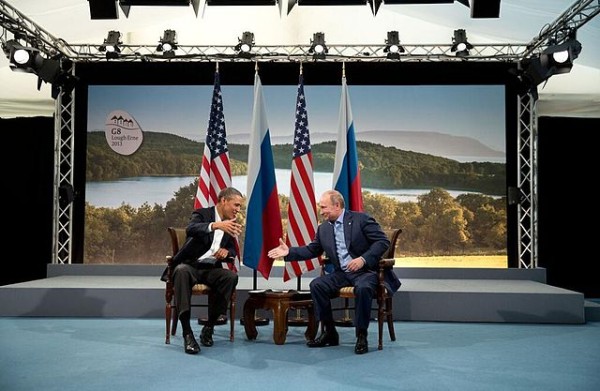
The latest development in the Syrian crisis illustrates the degree to which Russian President Vladimir Putin has outmaneuvered Barack Obama in Syria, a nation that has had a contentious relationship with the United States for the past four decades.
Since the outbreak of the Syrian war, Russia has been decisive and resolute in protecting its vital interests in Syria, while the United States has been hesitant in its approach to the five-year-old civil war and inconsistent in its attitude toward Assad.
To no one’s surprise, Washington’s dithering has come under fire.
Two major U.S. allies, France and Turkey, have cast aspersions on American policy. France’s outgoing foreign minister, Laurent Fabius, has dismissed it as “ambiguous.” Turkish President Recep Tayyip Erdogan has criticized Obama for backing “terrorists” — Syrian Kurdish rebel organizations fighting Islamic State in northern Syria.
Chuck Hagel, the former U.S. secretary of defence, has criticized Obama, too. Claiming he ignored his own “red lines” in Syria, Hegel has accused Obama of having damaged American credibility in the region. Hegel was referring to an incident during which Obama failed to hold Assad accountable for deploying chemical weapons.
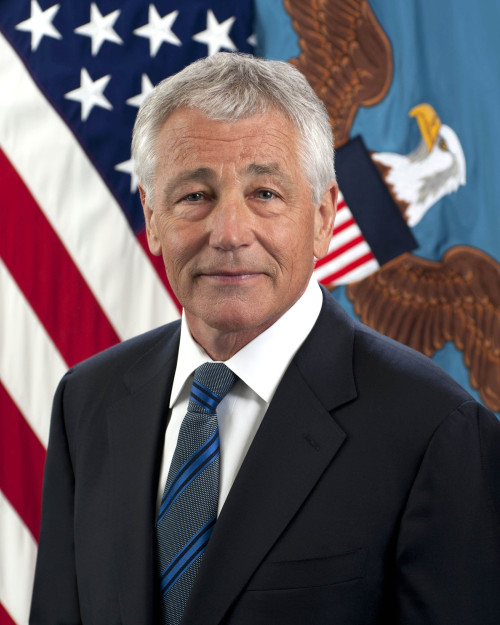
As the conflict in Syria deepened, Obama warned Assad that his use of such weapons would be tantamount to crossing a “red line” and would trigger a sharp military response from the United States. In August 2013, Syrian forces loyal to Assad crossed that line by firing sarin-laden rockets into Ghouta, a suburb of Damascus. By all accounts, hundreds of civilians were killed. Instead of striking Syria, Obama stepped back, citing the need for congressional support.
At this juncture, the Russians threw Assad a lifeline, devising a plan to remove and destroy Syria’s stocks of chemical weapons. It was a clever move on Russia’s part because Assad’s army had rarely relied on chemical weapons to win battles.
Lavrov worked together with Kerry to implement the deal, which staved off a U.S. cruise missile attack and consolidated Assad’s grip on power. Writing in Foreign Policy, Hagel noted that Obama’s volte-face “hurt the credibility of the president’s word.”
In the wake of this fiasco, some of Obama’s closest advisors, including Secretary of State Hillary Clinton and Secretary of Defence Leon Panetta, urged him to adopt a more aggressive stance toward Syria by establishing a no-fly zone near the Turkish border. Obama demurred, being reluctant to let the United States get dragged into another Middle Eastern adventure.
Still, Syria’s implosion has engaged the Obama administration. Ben Rhodes, Obama’s deputy national security advisor, told The New Yorker recently that Obama has spent more time on Syria than on any other issue.
From the moment the Syrian government cracked down harshly on peaceful demonstrators pleading for political reform, the United States has scrambled to devise a constructive policy with respect to Syria.
At first, Obama publicly urged Assad to resign. Then he secretly encouraged a coup d’etat against him. When these efforts proved fruitless, he switched course, agreeing to modestly arm “moderate” rebels seeking Assad’s ouster.
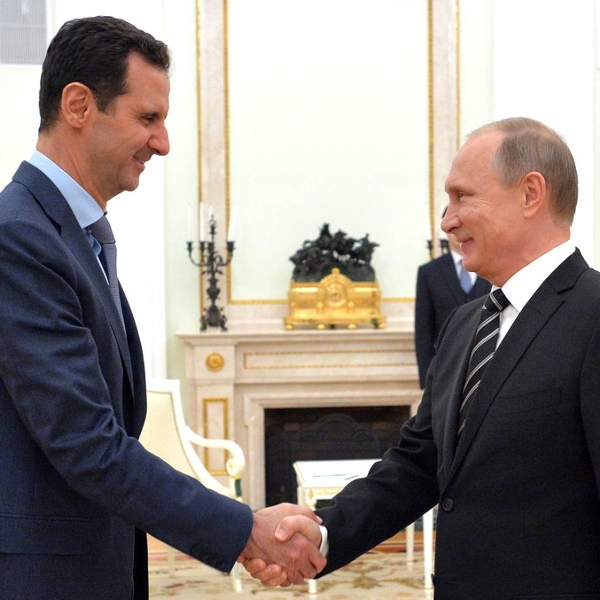
In the past year, the United States has modified its policy yet again, calling for a gradual transition away from Assad through United Nations-mediated negotiations. “The United States and our partners are not seeking so-called regime change,” Kerry said last December.
Nonetheless, the Obama administration insists that Assad, having lost his legitimacy, must leave Syria so that the bloodletting can stop and the parties can settle the conflict by peaceful means.
Russia, America’s rival, has supported the Assad regime resolutely, blocking United Nations Security Council resolutions condemning his brutal response to the uprising and continuing to be his chief weapons supplier.
Unlike Russia, the Obama administration has not acted decisively in Syria. Its abrupt cancellation of a $500 million program to train Syrian rebels was symptomatic of the disarray in its policy.
Today, the United States is working on two separate tracks in Syria. In addition to seeking Assad’s eventual removal, Washington is bent on destroying Islamic State’s infrastructure in Syria. But even here, the United States has moved too slowly: American aircraft did not begin launching raids against Islamic State in Syria until 2014.
Russia, focused on defending the Syrian regime at all costs, has been relentlessly bombing rebel groups opposed to Assad. Since the Russian Air Force launched its bombing campaign in Syria last September, the vast majority of its raids have targeted rebels of all stripes, including those backed by the United States. Much to Washington’s chagrin, the Russians have bombed Islamic State sites only sporadically.
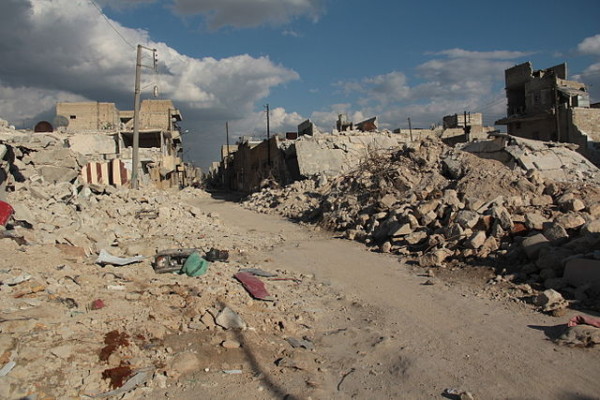
By contrast, American aircraft operating in Syria focus on Islamic State. But critics contend that the United States should escalate its attacks against Islamic State. Still others maintain that Assad’s regime should be the object of American airstrikes.
Obama claims that the United States has escalated its bombing missions aimed at Islamic State in Syria. Meanwhile, U.S. Secretary of Defence Ashton Carter says that more advisors, trainers and commandos will be sent to support the rebels.
At the end of the day, the scale of Washington’s commitment to removing Assad and eradicating Islamic State leaves much to be desired, especially when compared to the vast resources the Russians have brought to bear in Syria on Assad’s behalf.
Russia is thus likely to have a much greater impact on the outcome of the war in Syria than the United States.
